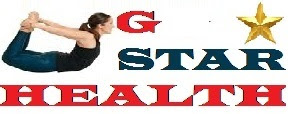What to Do to get Relief from Your Stuffy Nose?
- Medication - Non-Medication
There are many underlying causes for a stuffy nose (also called congestion), but contrary to popular belief, the nostrils are not clogged by mucus. A stuffy nose happens primarily because nasal tissues are inflamed. Often, this is caused by a common cold virus or by various types of allergies. It can also be caused by hormonal changes during pregnancy or even induced by exercise. Because infants do not know how to breathe out of their mouth, a stuffy nose can be quite serious for them, but for the rest of us, it's usually just an annoyance that can interfere with our daily activities.
Sometimes children put things up their nose that can become lodged and cause congestion and similar or associated symptoms, this is called foreign object nasal obstruction. Children also can get a stuffy nose from enlarged adenoids, which sometimes need to be surgically removed. Among adults, structural abnormalities, such as a deviated septum or enlarged turbinates, can cause congestion-like symptoms. Structural problems can be inherited or the result of chronic problems such as allergies or sinusitis, or even be the result of an injury.
Medications for Congestion and Stuffy Nose
Over-the-counter medications that work to shrink the blood vessels inside the nose can be effective. Nasal decongestants such as Afrin (oxymetazoline) are commonly used. Afrin should not be used longer than 3 days in a row to avoid a condition called rebound congestion (nasal spray addiction). Nasal decongestants that are commonly used on a longer-term basis (for chronic sinusitis or allergies) include Flonase or Nasonex.
Some medications work better for congestion caused by allergies than for congestion caused by a cold. These include Allegra, Claritin, Zyrtec or Benadryl. These drugs are known as antihistamines because they block a chemical substance that is released in response to an allergic reaction called histamine.
Drugs that contain a medication called pseudoephedrine (Sudafed) are also effective for relieving a stuffy nose. (However, per the U.S. Food and Drug Administration, cough and cold medications are not recommended for children under six). Pseudoephedrine should also not be used longer than 3 days as it can lead to rebound congestion. It is available over-the-counter but you must ask your pharmacist for it since the sales of this medication are tracked by the government.
Phenylephrine is an oral decongestant that is currently found in most over-the-counter cough and cold medications. It is safe for many individuals to use but research as to its effectiveness has had mixed results. Some studies have shown it not to be very effective in treating congestion.
You should consult your doctor or pharmacist and inform them of any other medications you are currently taking, any known allergies you have, significant health conditions and whether or not you are pregnant or breastfeeding before starting any new medication even if it is sold over-the-counter. Follow the directions included with the medication carefully. Consult your pediatrician before giving any new medication to your infant or child.
Treating Congestion and Stuffy Nose Without Medication
Also, while these medications can improve comfort they do have side effects, so here are some other things you can try before taking medication:
keep your head elevated
drink a lot of water
use a cool mist humidifier
use over-the-counter saline nasal sprays
try a neti pot
use a menthol cream on your chest (not recommended for small children or infants)
use over-the-counter adhesive strips that help keep your nostrils open
suck on a cough drop that has menthol in it
for infants, a bulb syringe can help remove secretions
Most of the time congestion will clear up in a week or so. You should see a doctor, however, if: you have a high fever, your symptoms last longer than a couple of weeks, your nasal passages become completely blocked, if your skin or lips develop a bluish tint (a condition called cyanosis) or if you breathing rate becomes very fast, you have noisy breathing or difficulty breathing.














.jpeg)



No comments:
Post a Comment